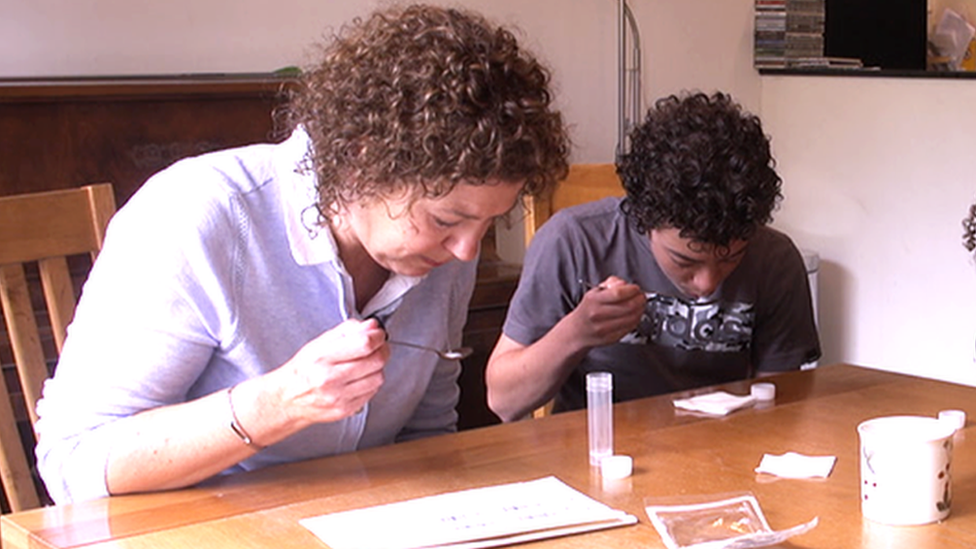Covid: Southampton saliva test study paused after lab contamination
- Published
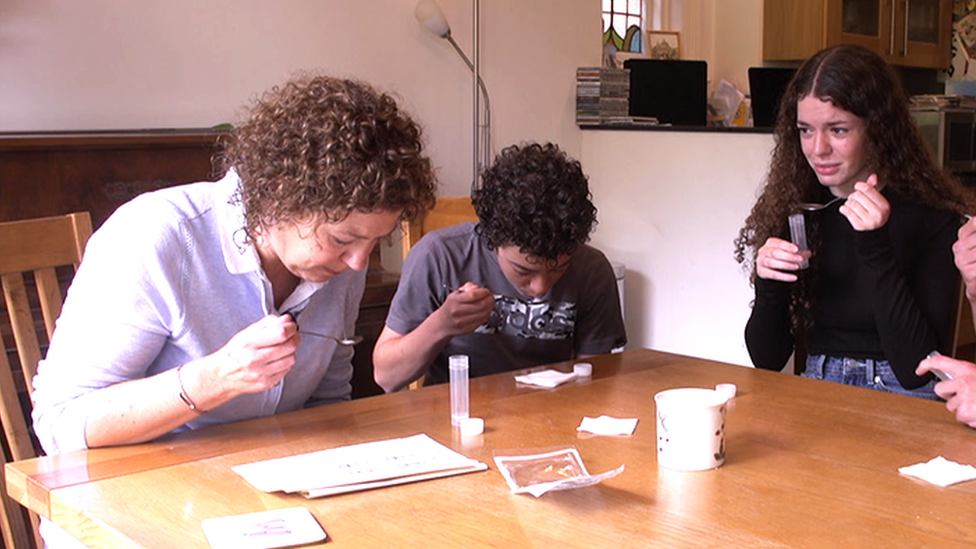
The saliva tests are designed to identify if a person is currently infected with coronavirus
A government coronavirus test programme at four schools has been paused due to contamination at a laboratory.
The sample-processing lab, at Chilworth near Southampton, is being cleaned, Hampshire and Isle of Wight Saliva Testing Programme said.
It added that no saliva test results were affected because the "minor contamination" happened over the Easter holidays.
Staff and students are being offered alternative tests.
Four schools and the University of Southampton began to offer weekly tests in September as part of a government-funded study.
Jane Bailey, the programme's chief executive, said the purpose-built laboratory would be decontaminated.
She said: "The programme will temporarily not be accepting saliva samples from schools returning after Easter.
"Contamination events can sometimes occur in any laboratory setting and need to be addressed before testing can continue."
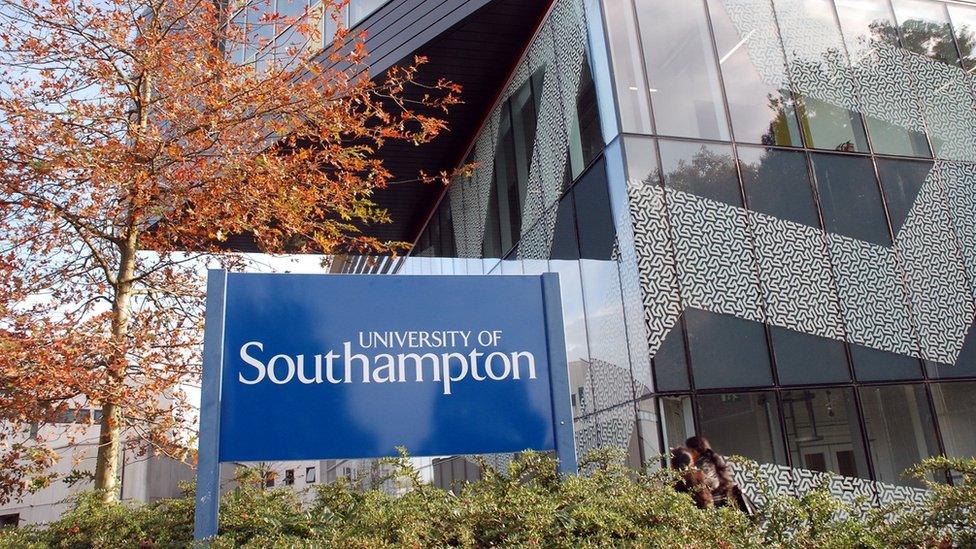
Staff and students at the University of Southampton and four schools have taken part
In a letter to parents, the Aspire Trust which runs schools involved in the pilot said participants would now switch to twice-weekly lateral flow tests at home.
Testing was previously paused at the end of March due to problems with the new laboratory not yet working at full capacity.
The RT-LAMP scheme allows people to collect their own sample by spitting into a pot with results usually given within 24 hours.
The test aims to identify positive cases early on, including asymptomatic patients or those with minor symptoms, so that people can self-isolate promptly.
The programme, led by University Hospital Southampton, has been "very effective", detecting 123 coronavirus cases over a six-week period in September and October, its directors previously said, external.
The university has since opted to offer lateral flow tests to its students instead.

COVID VACCINE: When can you get it?
NEW VARIANTS: How worrying are they?
FACE MASKS: When do I need to wear one?
TESTING: How do I get a virus test?
GLOBAL TRACKER: Where are the virus hotspots?
- Published29 March 2021
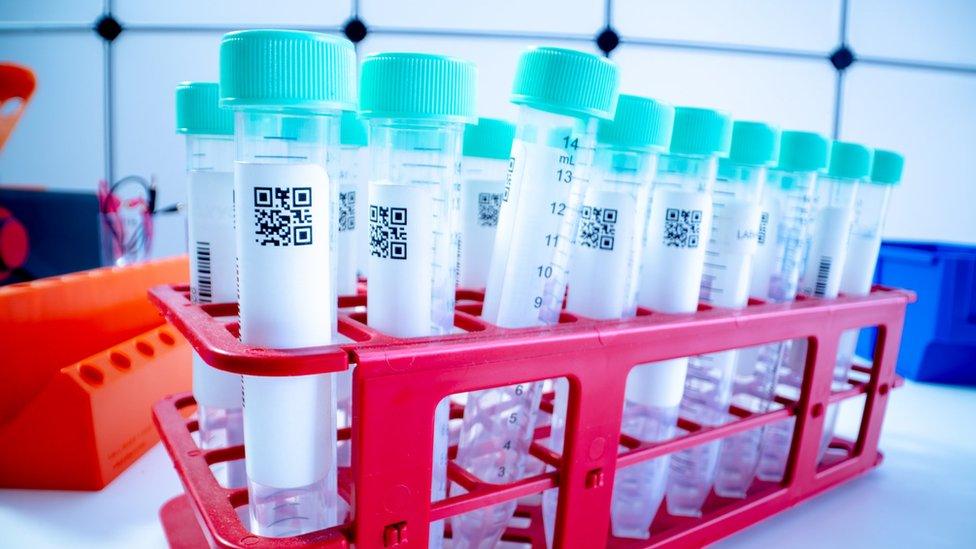
- Published18 November 2020

- Published11 September 2020
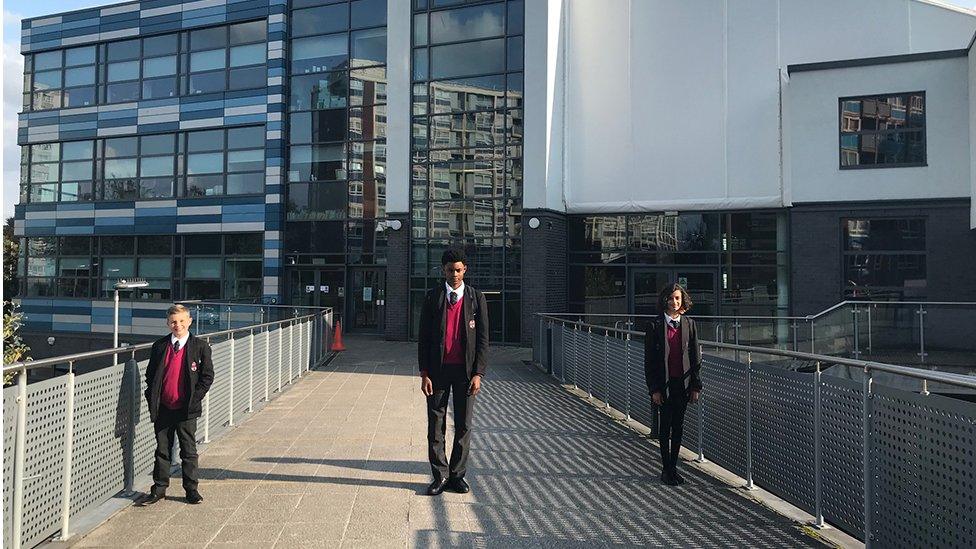
- Published3 September 2020
